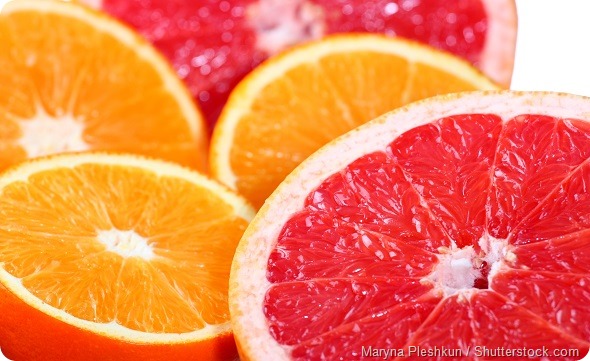A new analysis of two long-term studies has revealed a potential association between malignant melanoma risk and frequent consumption of grapefruit and oranges. The study found that compared with people who consumed these fruits less than twice a week, those who had them at least 1.6 times a day were at a 36% higher risk of developing melanoma.
At this time, we don’t advise that people cut back on citrus ─ but those who consume a lot of grapefruit and/or orange juice should be particularly careful to avoid prolonged sun exposure,” says lead author Shaowei Wu from the Warren Alpert Medical School of Brown University in Providence, Rhode Island.
As reported in the Journal of Clinical Oncology, the researchers used data on 63,810 women enrolled in the Nurses’ Health Study and 41,622 men from the Health Professional Follow-Up Study, with both studies running from the mid-1980s through to 2010. Every two to four years, information was collected on participants’ medical history, lifestyle factors, health events and dietary intake. A serving of citrus fruit was defined as the equivalent of one orange, half a grapefruit or a 6 oz glass of orange or grapefruit juice.

Over a follow-up period of 26 years, 1,840 participants were diagnosed with melanoma. A higher overall intake of citrus fruit was associated with an increased risk of melanoma in both men and women. Of the citrus fruits, grapefruit was the most strongly associated with increased melanoma risk. Even after adjustment for factors such as age, geographic location, alcohol intake, smoking and sun exposure, the link between citrus fruit consumption and melanoma was still strong.
Wu and colleagues speculate that the apparent link between citrus fruit consumption and melanoma may be due to the fruits containing furocoumarins. These are photoactive compounds that can make the skin more sensitive to sunlight, including the ultraviolet (UV) rays that can cause melanoma.
The researchers say they are not recommending changing fruit consumption because these fruits and vegetables are important for maintaining overall health. However, “until we learn more about these furocoumarins, those consuming fresh citrus fruits on a regular basis should be extra careful with sun exposure, and depending on their outdoor activities they should wear appropriate sunscreen, hats and sun-protective clothing,” says Wu.